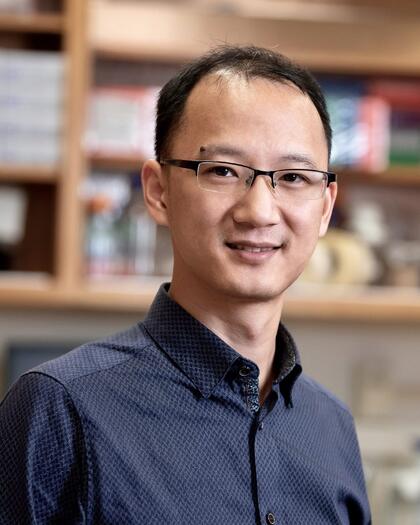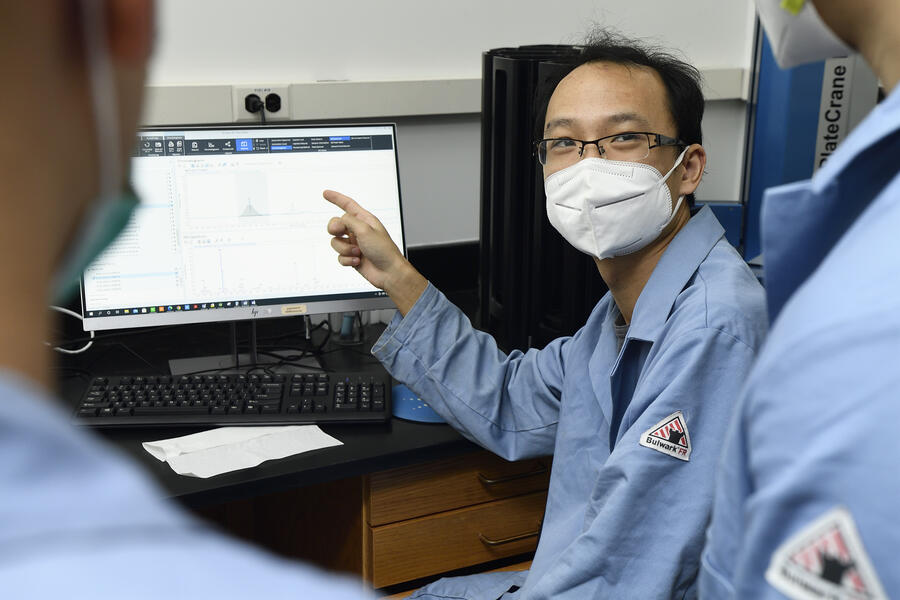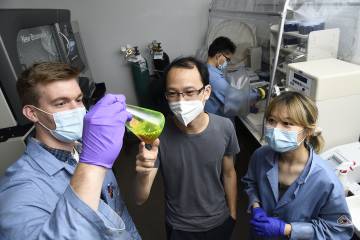Two Johns Hopkins assistant professors, chemist Xiongyi Huang and biophysicist Yaojun "Jun" Zhang, have been named 2025 Sloan Research Fellows by the Alfred P. Sloan Foundation. These two-year, $75,000 fellowships are awarded to early-career scientists in the U.S. and Canada who show strong potential to be leaders in their fields. Huang and Zhang are among 126 scholars recognized as fellows this year.
With the addition of Huang and Zhang, Johns Hopkins University has now had 89 Sloan Research Fellows since the award's creation in 1955. Candidates must be tenure-track, though untenured, faculty members in the fields of chemistry, computer science, Earth system science, economics, mathematics, neuroscience, or physics. The fellowship is extremely prestigious and competitive, with more than 1,000 nominations each year.
About the researchers

Image caption: Xiongyi Huang
Xiongyi Huang, an assistant professor in the Department of Chemistry, researches what he describes as "a fundamental challenge in protein engineering and biosynthesis:" enabling natural enzymes to catalyze artificial reactions. Over the past century, chemists have discovered many reactions that are crucial to modern society but have often struggled to find naturally evolved enzymes that can facilitate them. Huang's lab tackles this problem head-on, combining organic synthesis, computational modeling, bioinformatics, and protein engineering to reprogram and repurpose natural enzymes.
"Many of our current chemical synthesis methods are inefficient and environmentally harmful, generating significant waste," Huang explained. "Enzymes, nature's catalysts, often perform reactions with remarkable efficiency and selectivity under mild, sustainable conditions. The idea of leveraging enzymes to catalyze synthetic reactions—many of which have no known natural enzymatic counterparts—excites me because it offers a way to make chemical processes more sustainable and efficient."
Huang said that he felt honored to be named a Sloan Research Fellow, thanking his lab members for their hard work.
"This recognition would not have been possible without the dedication of my group members. They are the true heroes behind this achievement," he said. "[The Sloan Research Fellowship] not only acknowledges my group's efforts in this exciting research area but also empowers us to explore new frontiers in biocatalysis, including the integration of artificial intelligence into enzyme catalyst development."

Image caption: Yaojun Zhang
Yaojun "Jun" Zhang holds a joint appointment in the departments of Biophysics and Physics & Astronomy, where she conducts theoretical and computational research to understand the behavior of biomolecules and their assemblies across scales. Her lab currently studies biomolecular condensates and liquid-liquid phase separation (when a homogeneous mixture in a cell spontaneously separates into distinct liquids). Discoveries in this emerging field improve mankind's understanding of intracellular organization and its connection to the health and disease of all living beings.
"Biomolecular phase separation is a relatively new field, where ongoing discoveries bring fresh opportunities and excitement," Zhang said. "Each year, new biomolecular condensates are identified to play key roles in cellular physiology and disease. I find this field fascinating because it naturally combines physics and biology, revealing how physical principles underlie biological organization and function."
Now that she's been recognized by the Alfred P. Sloan Foundation, Zhang is excited to see what her lab can achieve next.
"Being named a Sloan Research Fellow is very encouraging," she said. "I hope this recognition will increase my lab's visibility and create more opportunities to collaborate with other labs in the field."
Posted in Science+Technology









